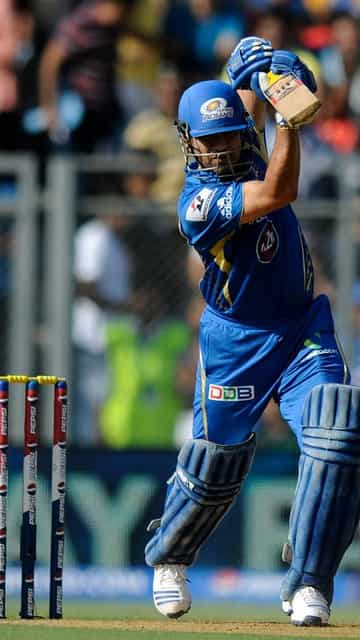Egypt's Islamist president Mohamed Mursi faces popular pressure to act tough but jettisoning the peace treaty would incur grave risks for a country still in turmoil after last year's revolt against Hosni Mubarak.
Israel's assault on Gaza sends more sparks flying into a combustible Middle East but is unlikely to ignite a wider war or destroy the Jewish state's 1979 peace treaty with Egypt.
A Hamas rocket killed three Israelis north of the Gaza Strip on Thursday and Israeli bombs brought the Palestinian toll to 13 in a worsening military showdown after Israel assassinated a top Hamas military commander the previous day.
Hamas, an offshoot of Egypt's Muslim Brotherhood, has become assertive in recent weeks, buoyed by a visit to Gaza by the emir of Qatar and by an apparent belief that Israel would not risk strong military action with Islamists ruling Egypt.
Egypt's Islamist president Mohamed Mursi, who has demanded that Washington rein in Israel's "unacceptable" attacks, faces popular pressure to act tough, but jettisoning the peace treaty would incur grave risks for a country still in turmoil after last year's revolt against Hosni Mubarak, who upheld it for 30 years.
However, US president Barack Obama, in telephone calls with Mursi and Israel's prime minister Benjamin Netanyahu on Wednesday, merely emphasised Israel's right to self-defence and gave no hint that he was considering any new push for peace with the Palestinians.
Cairo receives $1.3 billion a year in US military aid and looks to Washington for help with its ailing economy, constraining Mursi despite his need to show Egyptians that his policies differ from those of his US-backed predecessor.
"Mursi cannot do anything beyond reaching out to the international community because the balance of power in the region is tilted towards Israel," said Nabil Abdel Fattah, at Cairo's Ahram Centre for Political and Strategic Studies. "Arab countries also remain too weak militarily and diplomatically for any serious push against such aggression."
Obama has other headaches in West Asia for his second term, from the nuclear dispute with Iran to instability in Iraq and a conflict in Syria that has caused sometimes violent tensions on borders with Turkey, Lebanon, Iraq, Jordan and Israel.
The sectarian element in the Syrian struggle between mostly Sunni Muslim rebels and president Bashar al-Assad's Alawite-dominated rule fuels wider Sunni-Shi'ite rivalry in which Sunni-led states confront Shi'ite Iran, Assad's closest ally. This has estranged Hamas from some of its old friends.
The Sunni Islamist movement was once aligned with Shi'ite Hezbollah, Iran and Syria in an "axis of resistance" to Israel and the United States, but Assad's bloody crackdown on his opponents prompted it to break with Damascus earlier this year.
The pent-up frustration that burst into Arab uprisings last year has toppled four entrenched rulers so far. Popular unrest has flared in Jordan, Kuwait and Bahrain in the past week. Arab rulers, whether autocratic survivors or newly installed by the ballot box, must pay more heed to the sentiments of their citizens, overwhelmingly sympathetic to the Palestinians.
Yet, while it has again inflamed Arab anger, Israel's latest effort to deter rocket fire from Hamas militants in the densely populated Gaza Strip may well pass without an armed response from other Israeli foes such as Iran, Syria and Hezbollah.
Timur Goksel, a former UN peacekeeping adviser in Lebanon, said he expected no regional outgrowth to a familiar conflict beyond strongly worded condemnations from Arab leaders. "The only way this would get bigger is if Israel chose to take it to the next step [in Gaza]. That is Israel's decision and it isn't easy to guess because the Israelis have elections coming," he said. "If they leave it as is, it will die down."
Israel's military might is a daunting deterrent to any challenger, even one as battle-hardened as Lebanon's Hezbollah. The powerful Shi'ite movement fought Israel to a standstill in Lebanon in 2006 but stayed its hand during the last Israeli onslaught on Gaza in 2008-09 and will be wary of provoking another devastating war by firing rockets across the border.
Non-Arab Iran, savaged by Western sanctions, already faces Israeli threats to attack its nuclear facilities and, although it denies aspiring to match Israel's presumed nuclear arsenal, seems unlikely to plunge into an all-out conflict over Gaza.
Syria is preoccupied by its internal agony and is in no position to take on Israel. Still, exchanges of fire this week have broken decades of quiet on the line between Syria and the Israeli-occupied Golan Heights, fuelling speculation that Assad might stir trouble there as a diversion from his own plight.
The Gaza confrontation might briefly distract attention from Syria but would not greatly affect the conflict there, according to Beirut-based commentator Rami Khouri, who said the Israel-Hamas struggle had its own recurrent dynamic.
"The new outburst of violence is not surprising because there has been a consistent strategy of resistance by several groups to fire at Israel in response to the blockade," he said, referring to Israeli restrictions on the Gaza enclave. "It's not surprising because the situation there isn't sustainable," Khouri said.
For many Israelis, it is not sustainable either. During this year's cycle of violence and revenge, nearly 800 rockets from Gaza landed in southern Israel, disrupting life there and putting political pressure on Netanyahu, who faces a parliamentary election in January, to respond.
Israel is indeed concerned about possible Egyptian reaction — the government this month disavowed comments by senior defence ministry aide Amos Gilad that Egypt's Brotherhood was running a "shocking" dictatorship — but this has not tied its hands.
"Today we relayed a clear message to the Hamas organisation and other terrorist organisations," Netanyahu said on Wednesday, adding that Israel would broaden the assault if the need arose.
Israel has not ruled out a ground invasion as part of the military operation which started on Wednesday. Hamas's armed wing has called for revenge, saying: "The occupation has opened the gates of hell."
Additional reporting by Erika Solomon in Beirut, Marwa Awad in Cairo and Crispian Balmer in Jerusalem
![submenu-img]() US imposes sanctions on Chinese, Belarus firms for providing ballistic missile tech to Pakistan
US imposes sanctions on Chinese, Belarus firms for providing ballistic missile tech to Pakistan![submenu-img]() 'Don't have any comment': White House mum on reports of Israeli strikes in Iran
'Don't have any comment': White House mum on reports of Israeli strikes in Iran![submenu-img]() Yes Bank co-founder Rana Kapoor gets bail after four years in bank fraud case
Yes Bank co-founder Rana Kapoor gets bail after four years in bank fraud case![submenu-img]() Barmer Lok Sabha Polls 2024: Check key candidates, date of voting and other important details
Barmer Lok Sabha Polls 2024: Check key candidates, date of voting and other important details![submenu-img]() This star once lived in garage, earned Rs 51 as first salary; now charges Rs 5 crore per film, is worth Rs 335 crore
This star once lived in garage, earned Rs 51 as first salary; now charges Rs 5 crore per film, is worth Rs 335 crore![submenu-img]() DNA Verified: Is CAA an anti-Muslim law? Centre terms news report as 'misleading'
DNA Verified: Is CAA an anti-Muslim law? Centre terms news report as 'misleading'![submenu-img]() DNA Verified: Lok Sabha Elections 2024 to be held on April 19? Know truth behind viral message
DNA Verified: Lok Sabha Elections 2024 to be held on April 19? Know truth behind viral message![submenu-img]() DNA Verified: Modi govt giving students free laptops under 'One Student One Laptop' scheme? Know truth here
DNA Verified: Modi govt giving students free laptops under 'One Student One Laptop' scheme? Know truth here![submenu-img]() DNA Verified: Shah Rukh Khan denies reports of his role in release of India's naval officers from Qatar
DNA Verified: Shah Rukh Khan denies reports of his role in release of India's naval officers from Qatar![submenu-img]() DNA Verified: Is govt providing Rs 1.6 lakh benefit to girls under PM Ladli Laxmi Yojana? Know truth
DNA Verified: Is govt providing Rs 1.6 lakh benefit to girls under PM Ladli Laxmi Yojana? Know truth![submenu-img]() Remember Ali Haji? Aamir Khan, Kajol's son in Fanaa, who is now director, writer; here's how charming he looks now
Remember Ali Haji? Aamir Khan, Kajol's son in Fanaa, who is now director, writer; here's how charming he looks now![submenu-img]() Remember Sana Saeed? SRK's daughter in Kuch Kuch Hota Hai, here's how she looks after 26 years, she's dating..
Remember Sana Saeed? SRK's daughter in Kuch Kuch Hota Hai, here's how she looks after 26 years, she's dating..![submenu-img]() In pics: Rajinikanth, Kamal Haasan, Mani Ratnam, Suriya attend S Shankar's daughter Aishwarya's star-studded wedding
In pics: Rajinikanth, Kamal Haasan, Mani Ratnam, Suriya attend S Shankar's daughter Aishwarya's star-studded wedding![submenu-img]() In pics: Sanya Malhotra attends opening of school for neurodivergent individuals to mark World Autism Month
In pics: Sanya Malhotra attends opening of school for neurodivergent individuals to mark World Autism Month![submenu-img]() Remember Jibraan Khan? Shah Rukh's son in Kabhi Khushi Kabhie Gham, who worked in Brahmastra; here’s how he looks now
Remember Jibraan Khan? Shah Rukh's son in Kabhi Khushi Kabhie Gham, who worked in Brahmastra; here’s how he looks now![submenu-img]() DNA Explainer: What is cloud seeding which is blamed for wreaking havoc in Dubai?
DNA Explainer: What is cloud seeding which is blamed for wreaking havoc in Dubai?![submenu-img]() DNA Explainer: What is Israel's Arrow-3 defence system used to intercept Iran's missile attack?
DNA Explainer: What is Israel's Arrow-3 defence system used to intercept Iran's missile attack?![submenu-img]() DNA Explainer: How Iranian projectiles failed to breach iron-clad Israeli air defence
DNA Explainer: How Iranian projectiles failed to breach iron-clad Israeli air defence![submenu-img]() DNA Explainer: What is India's stand amid Iran-Israel conflict?
DNA Explainer: What is India's stand amid Iran-Israel conflict?![submenu-img]() DNA Explainer: Why Iran attacked Israel with hundreds of drones, missiles
DNA Explainer: Why Iran attacked Israel with hundreds of drones, missiles![submenu-img]() This star once lived in garage, earned Rs 51 as first salary; now charges Rs 5 crore per film, is worth Rs 335 crore
This star once lived in garage, earned Rs 51 as first salary; now charges Rs 5 crore per film, is worth Rs 335 crore![submenu-img]() Meet actress, who worked as cook for free food, mopped floors, one Instagram post changed her life, is now worth…
Meet actress, who worked as cook for free food, mopped floors, one Instagram post changed her life, is now worth… ![submenu-img]() UP man arrested for booking cab from Salman Khan's house under Lawrence Bishnoi's name
UP man arrested for booking cab from Salman Khan's house under Lawrence Bishnoi's name ![submenu-img]() 'Justice milega': Ankita Lokhande talks about Sushant Singh Rajput, reveals she's still connected with his family
'Justice milega': Ankita Lokhande talks about Sushant Singh Rajput, reveals she's still connected with his family![submenu-img]() Rajkummar Rao reacts to plastic surgery rumours, admits he got fillers: 'If something gives me confidence...'
Rajkummar Rao reacts to plastic surgery rumours, admits he got fillers: 'If something gives me confidence...'![submenu-img]() IPL 2024: KL Rahul, Quinton de Kock star in Lucknow Super Giants' dominating 8-wicket win over Chennai Super Kings
IPL 2024: KL Rahul, Quinton de Kock star in Lucknow Super Giants' dominating 8-wicket win over Chennai Super Kings![submenu-img]() DC vs SRH, IPL 2024: Predicted playing XI, live streaming details, weather and pitch report
DC vs SRH, IPL 2024: Predicted playing XI, live streaming details, weather and pitch report![submenu-img]() Watch: Virat Kohli's cheeky 'your wife' remark to Dinesh Karthik leaves RCB teammates in splits
Watch: Virat Kohli's cheeky 'your wife' remark to Dinesh Karthik leaves RCB teammates in splits ![submenu-img]() DC vs SRH IPL 2024 Dream11 prediction: Fantasy cricket tips for Delhi Capitals vs Sunrisers Hyderabad
DC vs SRH IPL 2024 Dream11 prediction: Fantasy cricket tips for Delhi Capitals vs Sunrisers Hyderabad![submenu-img]() 'Kohli said it's not an option, just...': KL Rahul recalls his IPL debut for RCB in 2013
'Kohli said it's not an option, just...': KL Rahul recalls his IPL debut for RCB in 2013![submenu-img]() Canada's biggest heist: Two Indian-origin men among six arrested for Rs 1300 crore cash, gold theft
Canada's biggest heist: Two Indian-origin men among six arrested for Rs 1300 crore cash, gold theft![submenu-img]() Donuru Ananya Reddy, who secured AIR 3 in UPSC CSE 2023, calls Virat Kohli her inspiration, says…
Donuru Ananya Reddy, who secured AIR 3 in UPSC CSE 2023, calls Virat Kohli her inspiration, says…![submenu-img]() Nestle getting children addicted to sugar, Cerelac contains 3 grams of sugar per serving in India but not in…
Nestle getting children addicted to sugar, Cerelac contains 3 grams of sugar per serving in India but not in…![submenu-img]() Viral video: Woman enters crowded Delhi bus wearing bikini, makes obscene gesture at passenger, watch
Viral video: Woman enters crowded Delhi bus wearing bikini, makes obscene gesture at passenger, watch![submenu-img]() This Swiss Alps wedding outshine Mukesh Ambani's son Anant Ambani's Jamnagar pre-wedding gala
This Swiss Alps wedding outshine Mukesh Ambani's son Anant Ambani's Jamnagar pre-wedding gala













































)
)
)
)
)
)